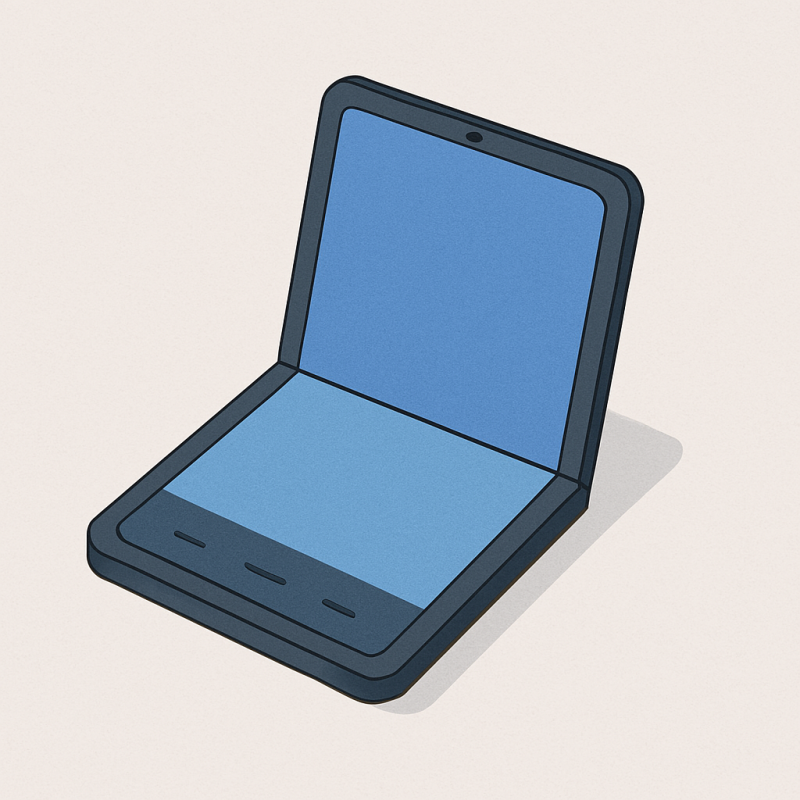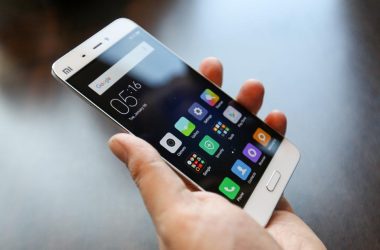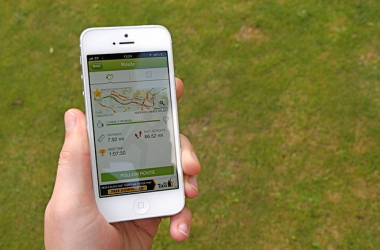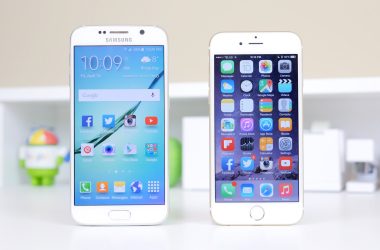Table of Contents Show
Introduction
Foldable phones have transitioned from futuristic prototypes to real-world devices with mass-market appeal. They’re no longer just tech gimmicks – they’re here, and they’re getting better with each generation. Whether it’s for productivity, gaming, photography, or just the wow factor, foldables offer something fresh in an otherwise flat smartphone landscape. The foldable revolution is real, and it’s reshaping how we think about our devices.
With leading tech giants like Samsung, Huawei, and Motorola pushing innovation, and newcomers like Xiaomi and Oppo throwing down serious competition, 2025 is shaping up to be the year where foldables start moving from novelty to norm.
In this detailed breakdown, we’ll explore the best foldable phones available right now. We’ll cover their specs, strengths, weaknesses, and what kind of user each one is best for – so you can pick the foldable that fits your lifestyle.
1. Samsung Galaxy Z Fold 3
Best for: Power users and multitaskers
Samsung practically owns the foldable segment, and the Galaxy Z Fold 3 is a testament to their dominance. While the newer Z Fold 4 and Z Fold 5 may be available in some regions, the Fold 3 still offers serious value for those who want flagship features without paying top-tier prices.
| Specs | Details |
|---|---|
| Display | 7.6″ QXGA+ Dynamic AMOLED (unfolded) |
| Cover Display | 6.2″ HD+ Dynamic AMOLED |
| Processor | Snapdragon 888 |
| RAM | 12GB |
| Storage | 256GB / 512GB |
| Cameras | Triple rear (12MP) / 10MP front / 4MP under-display |
| S Pen Support | Yes (Fold Edition) |
| IP Rating | IPX8 water resistance |
Highlights:
- True multitasking with up to three apps side by side.
- S Pen support makes it a mini-tablet for creatives.
- Durable hinge and water resistance.
Downsides:
- Still fragile compared to traditional phones.
- Expensive, even a couple of years after launch.
If you’re the kind of person who uses their phone for everything from work to Netflix, the Z Fold 3 is like having a mini-PC in your pocket.
2. Motorola Razr 5G
Best for: Style-focused users and fans of retro tech
Motorola brought serious nostalgia back with the updated Razr. The Razr 5G improves on the original foldable Razr in meaningful ways – better hinge, better screen, and most importantly, better performance.
| Specs | Details |
|---|---|
| Display | 6.2″ Foldable P-OLED (main) |
| Cover Display | 2.7″ G-OLED Quick View |
| Processor | Snapdragon 765G |
| RAM | 8GB |
| Storage | 256GB |
| Cameras | 48MP main / 20MP front |
| Battery | 2800mAh |
Highlights:
- Compact and stylish with iconic flip design.
- Functional cover display for quick interactions.
- Pure Android experience.
Downsides:
- Limited battery life.
- Mid-range chipset for a premium price.
This is for someone who wants to stand out – a fashion statement that also happens to make calls.
3. Huawei Mate X2
Best for: Photography lovers and display purists
Huawei went bold with the Mate X2, ditching their original outward fold in favor of a more durable inward design, much like Samsung’s Fold series. It’s sleek, powerful, and packed with top-tier cameras.
| Specs | Details |
|---|---|
| Display | 8″ OLED (unfolded) |
| Cover Display | 6.45″ OLED |
| Processor | Kirin 9000 |
| RAM | 8GB |
| Storage | 256GB / 512GB |
| Cameras | 50MP main + 16MP ultra-wide + 12MP telephoto + 8MP periscope |
| Battery | 4500mAh with 55W fast charging |
Highlights:
- Incredible camera setup that rivals DSLR quality.
- Stunning display with near-invisible crease.
- Elegant hinge with near-zero gap.
Downsides:
- No Google services (big deal for many users).
- Limited availability outside China.
Despite its drawbacks, this phone sets a high bar for build quality and screen clarity. If photography and display aesthetics are your thing, it’s worth the import effort.
4. Xiaomi Mi Mix Fold
Best for: Early adopters and tech enthusiasts
Xiaomi’s first attempt at a foldable came in swinging. The Mi Mix Fold offers massive screen real estate, a solid chipset, and one of the most innovative camera features we’ve seen: a liquid lens.
| Specs | Details |
|---|---|
| Display | 8.01″ OLED (unfolded) |
| Cover Display | 6.52″ AMOLED |
| Processor | Snapdragon 888 |
| RAM | 12GB / 16GB |
| Storage | 256GB / 512GB |
| Cameras | 108MP main + 13MP ultra-wide + 8MP liquid lens |
| Battery | 5020mAh with 67W fast charging |
Highlights:
- Massive internal display for media and multitasking.
- Liquid lens shifts between macro and telephoto.
- Powerful performance at competitive pricing.
Downsides:
- No global release – import required.
- Lacks polish of Samsung’s software.
Xiaomi’s aggressive pricing makes this one of the most powerful foldables for the money – if you’re willing to go the extra mile to get it.
5. Oppo Find N
Best for: Compact design lovers and first-time foldable users
The Oppo Find N makes a strong case for foldables that don’t need to be gigantic. With its smaller footprint and clever hinge, the Find N is one of the most practical and refined foldables out there.
| Specs | Details |
|---|---|
| Display | 7.1″ AMOLED (unfolded) |
| Cover Display | 5.49″ AMOLED |
| Processor | Snapdragon 888 |
| RAM | 8GB / 12GB |
| Storage | 256GB / 512GB |
| Cameras | 50MP main + 16MP ultra-wide + 13MP telephoto |
| Battery | 4500mAh with 33W fast charging |
Highlights:
- Nearly crease-free display.
- Compact outer screen makes it more usable closed.
- Superb hinge with no gap.
Downsides:
- Only available in certain regions.
- No water resistance rating.
If you’re new to foldables and don’t want to feel like you’re carrying a brick, the Find N hits a sweet spot between form and function.
6. Microsoft Surface Duo 2
Best for: Productivity nerds and Microsoft power users
This isn’t your typical foldable. The Surface Duo 2 features two separate screens joined by a hinge, ideal for true multitasking. It runs a heavily skinned version of Android optimized for Microsoft services.
| Specs | Details |
|---|---|
| Displays | Two 5.8″ AMOLED displays (8.3″ total) |
| Processor | Snapdragon 888 |
| RAM | 8GB |
| Storage | 128GB / 256GB / 512GB |
| Cameras | 12MP main + 12MP telephoto + 16MP ultra-wide |
| Battery | 4449mAh |
Highlights:
- Seamless integration with Microsoft Office and Teams.
- Dual-screen multitasking taken to the next level.
- Premium feel with unique use case.
Downsides:
- Bulky and less intuitive than a single foldable screen.
- Software still improving.
For professionals who live in Outlook and Excel, this could be the productivity dream machine – just expect a learning curve.
7. Royole FlexPai 2
Best for: Tinkerers and innovation fans
Royole was the first brand to release a foldable phone, and while the FlexPai 2 isn’t as polished as newer entries, it’s still a fascinating device for those who want to see how the tech has evolved.
| Specs | Details |
|---|---|
| Display | 7.8″ AMOLED (folds outward) |
| Processor | Snapdragon 865 |
| RAM | 8GB / 12GB |
| Storage | 256GB / 512GB |
| Cameras | 64MP main + 16MP ultra-wide + 8MP telephoto |
| Battery | 4450mAh |
Highlights:
- Unique outward folding screen.
- Decent performance and specs.
- Affordable (compared to other foldables).
Downsides:
- Outdated software experience.
- Vulnerable to damage due to exposed screen.
The FlexPai 2 isn’t for everyone, but if you want a budget-friendly foldable or a collector’s piece, it’s worth a look.
8. Samsung Galaxy Z Flip 3
Best for: Everyday users who want style and function
The Galaxy Z Flip 3 brings foldables to the mainstream. It’s compact, stylish, and relatively affordable for a foldable. It may not have the screen size of the Fold, but it nails portability.
| Specs | Details |
|---|---|
| Display | 6.7″ FHD+ Dynamic AMOLED (unfolded) |
| Cover Display | 1.9″ Super AMOLED |
| Processor | Snapdragon 888 |
| RAM | 8GB |
| Storage | 128GB / 256GB |
| Cameras | 12MP wide + 12MP ultra-wide / 10MP selfie |
| Battery | 3300mAh |
Highlights:
- Pocket-friendly form factor.
- Stylish and customizable.
- Durable hinge and IPX8 water resistance.
Downsides:
- Smaller battery limits heavy usage.
- No S Pen or desktop-style multitasking.
It’s the most accessible foldable for the average user and arguably the one that’s best suited to life on the go.
Are Foldables Worth It in 2025?
Short answer: Yes – but it depends on how you use your phone.
For power users, mobile workers, and early adopters, foldables offer serious benefits. That said, they’re still expensive, and battery life can be a drawback on some models. Build quality is improving, but it’s still not on par with rugged traditional smartphones.
And if you’re wondering whether this is a short-term trend – the market suggests otherwise. IDC reported that foldable smartphone shipments are expected to hit over 48 million units by 2027, growing at nearly 30% annually from 2022.
Final Thoughts
Foldables are no longer experimental gadgets – they’re real, usable, and genuinely impressive. From Samsung’s powerhouse Z Fold 3 to Motorola’s stylish Razr 5G, there’s now a foldable phone for just about everyone.
Whether you want a productivity beast, a media machine, or a chic conversation starter, there’s an option out there worth your time and money. As companies iron out durability issues and software improves, foldables are shaping up to be the next big evolution in mobile tech.
If you’re ready to break away from the slab-phone routine, a foldable just might be your perfect next upgrade.









